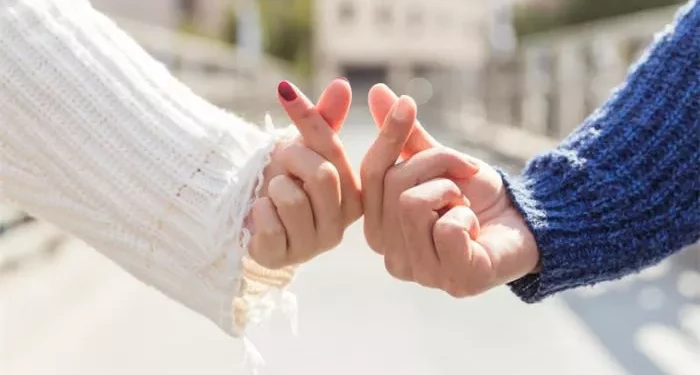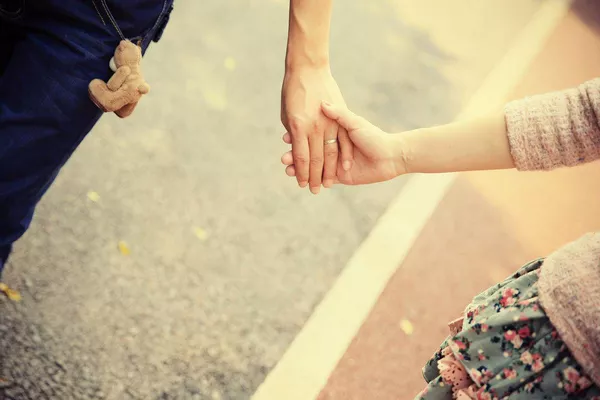Unrequited love is a common emotional experience where one person has strong romantic feelings for another who does not feel the same way. This type of love can lead to significant emotional pain and confusion. Understanding the causes of unrequited love can help individuals navigate their feelings and relationships more effectively. In this article, we will explore the psychological, biological, and social factors that contribute to unrequited love, as well as its emotional impact and ways to cope with it.
1. Definition of Unrequited Love
Unrequited love is defined as a romantic feeling that is not reciprocated by the other person. It can occur in various contexts, such as:
One-sided Crush: When someone has a crush on a friend or acquaintance who does not share the same feelings.
Long-term Infatuation: When an individual harbors feelings for someone over an extended period without any reciprocation.
Unreciprocated Feelings in Relationships: When one partner in a relationship desires more emotional or physical intimacy than the other.
Unrequited love can lead to feelings of sadness, loneliness, and frustration, making it a challenging emotional experience.
2. Psychological Factors
Attachment Styles
One significant psychological factor that contributes to unrequited love is an individual’s attachment style. Attachment theory, developed by John Bowlby and Mary Ainsworth, suggests that early relationships with caregivers shape our patterns of attachment in adulthood. There are four primary attachment styles:
Secure Attachment: Individuals with a secure attachment style are comfortable with intimacy and trust. They are less likely to experience unrequited love because they have a healthy understanding of relationships.
Anxious Attachment: Those with an anxious attachment style often fear abandonment and seek constant reassurance. They may be more prone to unrequited love because they may idealize others and overlook signs of disinterest.
Avoidant Attachment: Individuals with avoidant attachment may struggle with intimacy and often distance themselves from emotional connections. They may experience unrequited love as a way to avoid deeper emotional engagement.
Disorganized Attachment: This style is characterized by a lack of clear attachment behaviors. Individuals may experience unrequited love unpredictably, fluctuating between desire for closeness and fear of intimacy.
Idealization and Fantasy
Unrequited love often involves idealizing the object of one’s affection. This idealization can lead to a distorted perception of the person, making them seem perfect. Individuals in a state of unrequited love may engage in fantasy, imagining scenarios where they are together. This fantasy can amplify feelings of attraction and longing, making it difficult to accept the reality of the situation.
Low Self-Esteem
Low self-esteem can also contribute to unrequited love. Individuals who struggle with self-worth may seek validation through romantic relationships. The intense feelings associated with unrequited love can provide a temporary boost to self-esteem. However, this reliance on external validation can lead to emotional instability if the feelings are not reciprocated.
Fear of Rejection
The fear of rejection can play a significant role in unrequited love. Individuals may avoid expressing their feelings due to the anxiety associated with potential rejection. This fear can lead to a cycle of longing without resolution, as the individual may remain trapped in their feelings without ever knowing if they could have been reciprocated.
3. Biological Factors
Neurotransmitters and Hormones
Biological factors also play a significant role in the experience of unrequited love. When someone experiences romantic attraction, the brain releases a variety of neurotransmitters and hormones that contribute to feelings of euphoria and attachment. Some key players include:
Dopamine: This neurotransmitter is associated with pleasure and reward. High levels of dopamine are released during the early stages of romantic attraction, leading to feelings of excitement and joy.
Norepinephrine: This hormone is related to the body’s fight-or-flight response. It can cause increased heart rate and heightened alertness when around the object of one’s affection.
Oxytocin: Often referred to as the “love hormone,” oxytocin plays a role in bonding and attachment. It is released during physical touch and intimate moments, deepening feelings of connection.
Brain Activity
Research has shown that the brains of individuals experiencing romantic attraction exhibit increased activity in areas associated with reward and motivation. Functional MRI studies have found that the brain’s reward centers light up when individuals think about their love interest. This neurological response reinforces the feelings of desire and attachment, making it difficult to let go when those feelings are not reciprocated.
4. Social Factors
Cultural Influences
Cultural norms and societal expectations can also influence the experience of unrequited love. In many cultures, romantic love is idealized and portrayed as a central aspect of life. This cultural narrative can lead individuals to pursue intense romantic feelings, often equating them with happiness and fulfillment. The pressure to find love can exacerbate feelings of unrequited love, especially if individuals feel they are falling behind their peers.
Social Media and Technology
In today’s digital age, social media and technology play a significant role in how people experience love and attraction. Online interactions can foster feelings of connection and intimacy, even with individuals who may be physically distant. However, social media can also create unrealistic expectations and comparisons, amplifying feelings of unrequited love. Seeing others in happy relationships can lead to feelings of inadequacy and longing for what one does not have.
Peer Influence
Friends and social circles can impact how individuals experience and express their feelings of attraction. Peer pressure and societal norms can encourage individuals to pursue romantic interests, sometimes leading to unrequited love. Additionally, sharing experiences of unrequited love with friends can reinforce these feelings, creating a sense of validation despite the emotional pain.
5. The Cycle of Unrequited Love
Initial Attraction
The cycle of unrequited love often begins with an initial attraction. This attraction may be sparked by physical appearance, shared interests, or a sense of mystery. The initial phase is often characterized by excitement and anticipation, as the individual fantasizes about the potential for a romantic relationship.
Obsession and Idealization
As attraction deepens, individuals may become obsessed with the object of their affection. They may engage in constant thinking about the person, analyzing every interaction and searching for signs of reciprocation. This obsession can lead to idealization, where the individual overlooks flaws and focuses on positive traits. The more they idealize the person, the more difficult it becomes to accept the reality of the situation.
Emotional Highs and Lows
Unrequited love is often marked by emotional highs and lows. When the individual perceives signs of reciprocation, they may experience intense joy and excitement. Conversely, when signs are ambiguous or negative, feelings of anxiety, despair, and frustration can arise. This emotional rollercoaster can be exhausting and may lead to further fixation on the unrequited feelings.
The Quest for Reciprocation
A central feature of unrequited love is the desire for emotional reciprocation. Individuals may engage in behaviors to elicit responses from their love interest, such as flirting or seeking out interactions. This quest for reciprocation can become consuming and may lead to feelings of disappointment if the desired response is not achieved. The cycle can continue as the individual clings to hope, despite the lack of reciprocation.
6. The Emotional Impact of Unrequited Love
Emotional Distress
Unrequited love can lead to significant emotional distress. Individuals may experience feelings of sadness, loneliness, and frustration. The constant longing for someone who does not feel the same way can be painful and isolating. Many people report feelings of hopelessness and despair as they navigate their unreciprocated feelings.
Impact on Self-Esteem
The experience of unrequited love can also negatively impact self-esteem. Individuals may internalize the rejection, leading to feelings of unworthiness or inadequacy. This can create a cycle of low self-esteem, where the individual feels less deserving of love and connection.
Difficulty Moving On
Moving on from unrequited love can be challenging. The emotional attachment to the person can make it difficult to let go, leading to prolonged periods of longing and sadness. Individuals may find themselves stuck in a cycle of hope and disappointment, making it hard to pursue new relationships or focus on personal growth.
7. Coping with Unrequited Love
Acknowledge Your Feelings
The first step in coping with unrequited love is to acknowledge and accept your feelings. It is normal to feel sad, frustrated, or confused. Allow yourself to experience these emotions without judgment. Journaling or talking to a trusted friend can help process your feelings.
Set Boundaries
If possible, consider setting boundaries with the person you have feelings for. This might involve limiting contact or avoiding situations where you may encounter them. Creating distance can help reduce obsessive thoughts and allow you to focus on healing.
Focus on Self-Care
Engaging in self-care is essential during this time. Focus on activities that bring you joy and fulfillment. This could include hobbies, exercise, or spending time with friends and family. Prioritizing your well-being can help shift your focus away from the unreciprocated feelings.
Seek Support
Talking to friends, family, or a therapist can provide valuable support. Sharing your feelings with others can help you gain perspective and feel less isolated. Professional counseling can also be beneficial in navigating the emotional challenges of unrequited love.
Explore New Interests
Engaging in new activities or interests can help redirect your focus and energy. This can provide opportunities to meet new people and potentially form new connections. Exploring new hobbies can also boost your self-esteem and sense of fulfillment.
Practice Mindfulness
Mindfulness practices, such as meditation or deep breathing exercises, can help manage emotional distress. These techniques can promote relaxation and help you stay grounded in the present moment, reducing the tendency to dwell on unreciprocated feelings.
8. Moving Forward
Acceptance
Moving forward from unrequited love involves acceptance. Recognize that not all feelings will be reciprocated, and that is a natural part of life. Accepting the situation can help you find closure and open yourself up to new possibilities.
Learning from the Experience
Reflecting on the experience can provide valuable insights. Consider what you learned about yourself, your desires, and your patterns in relationships. This self-awareness can help you make healthier choices in future romantic endeavors.
Embracing New Opportunities
As you heal, be open to new opportunities for love and connection. Engage in social activities, meet new people, and allow yourself to explore potential relationships. Embracing new experiences can help you move on from unrequited love and find fulfillment.
Conclusion
Unrequited love is a complex emotional experience that can lead to significant distress and confusion. It is influenced by a combination of psychological, biological, and social factors. Understanding the causes of unrequited love can help individuals navigate their feelings and relationships more effectively. By acknowledging emotions, setting boundaries, and engaging in self-care, individuals can cope with unrequited love and move forward. Ultimately, recognizing that unrequited love is a common experience can provide comfort and perspective, allowing individuals to embrace new opportunities for love and connection in the future.
Related topics:























